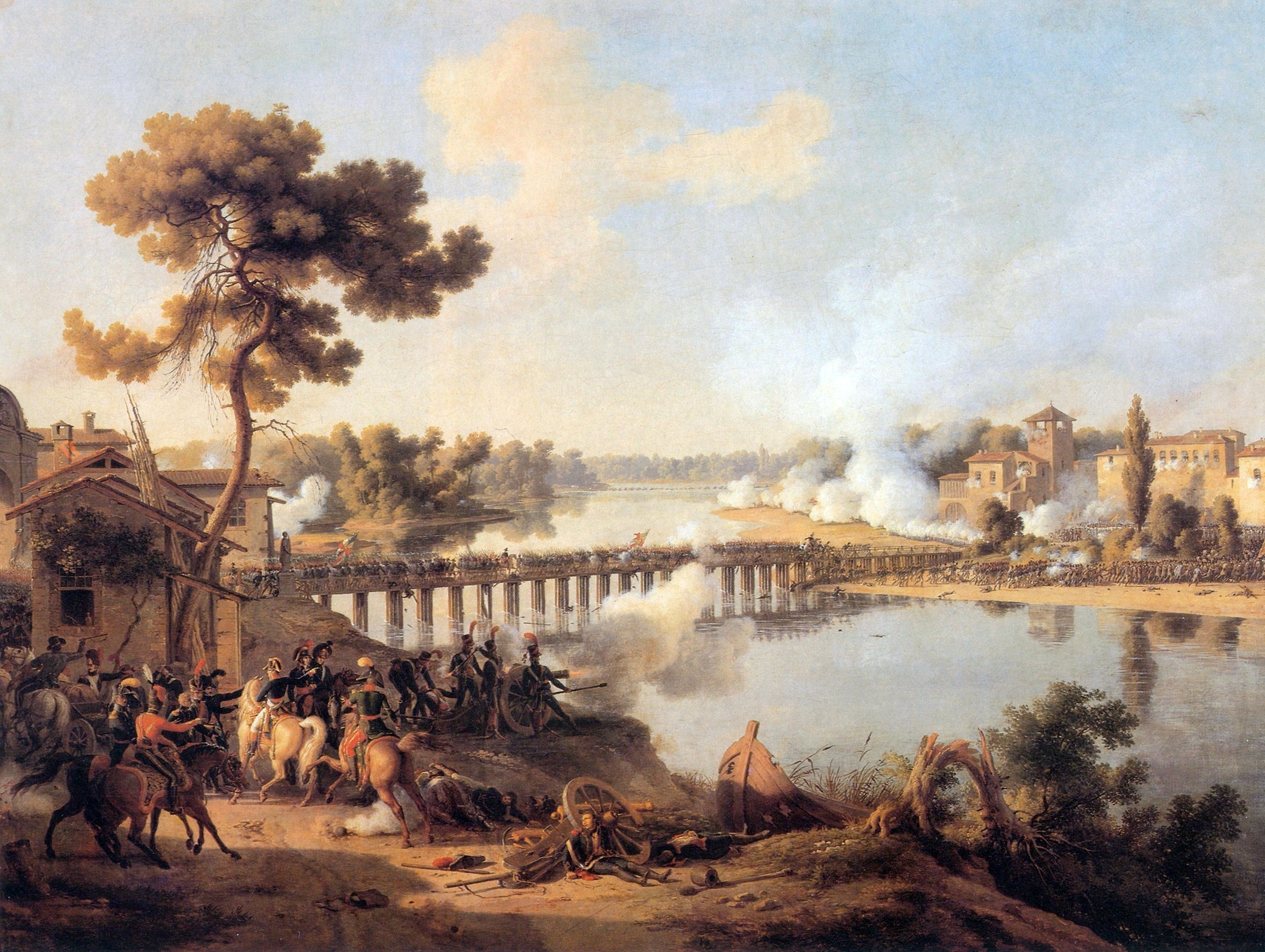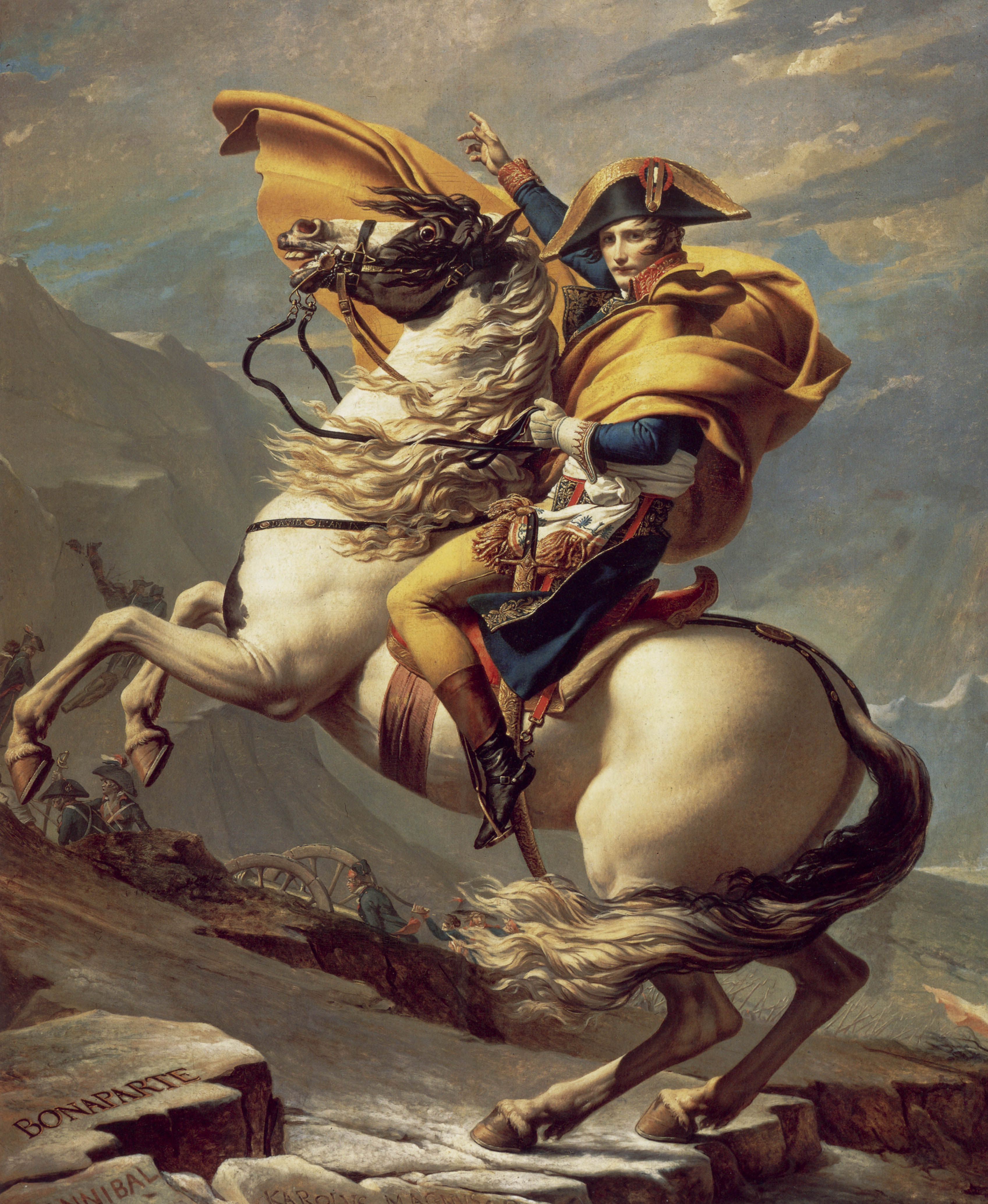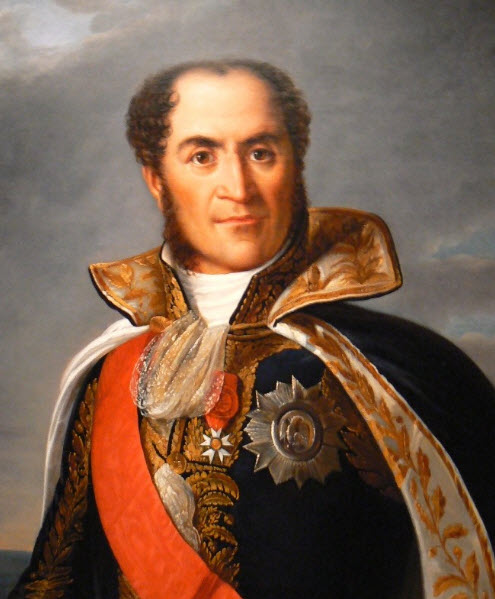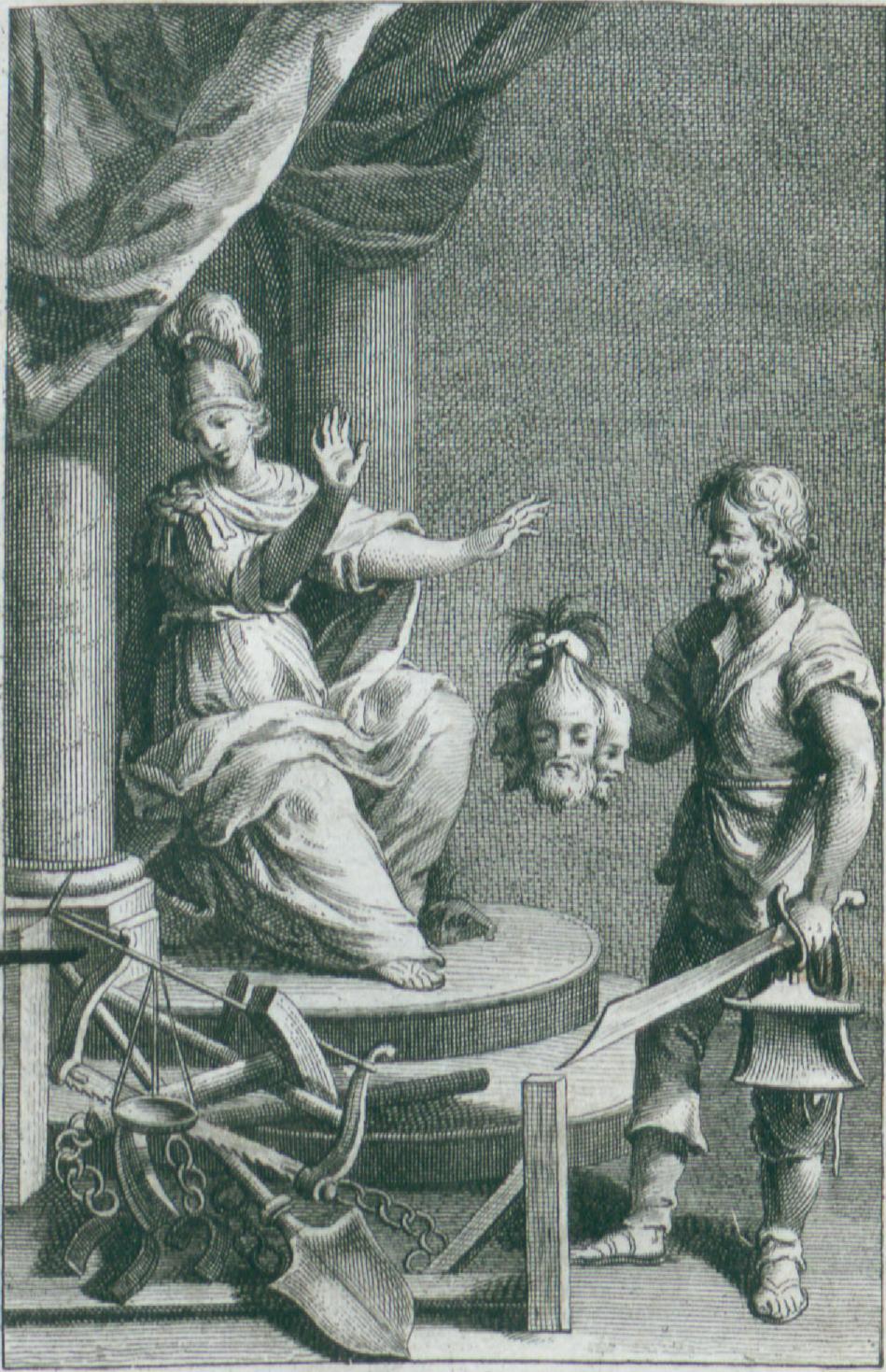|
Francesco Melzi D'Eril
Francesco Melzi d'Eril, Duke of Lodi, Count of Magenta (6 March 1753 – 16 January 1816) was an Italian politician and patriot, serving as vice-president of the Napoleonic Italian Republic (1802–1805). He was a consistent supporter of the Italian unification ideals that would lead to the Italian Risorgimento shortly after his death. Biography Childhood and education Francesco Melzi d'Eril was born to Gaspare and Marianna Teresa d'Eril in 1753. Despite the House of Melzi d'Eril being one of the prominent families in the Milanese aristocracy, their wealth had been compromised. This was mostly due to Francesco's grandfather Francesco Saverio Melzi, who had fought in the War of the Austrian Succession along with the Spanish, thus falling in disgrace when Empress Maria Theresa had re-established her control over her possessions in Lombardy. As a consequence of this situation, Francesco Melzi d'Eril was raised by his uncle. Francesco's uncle had him educated by the Jesuits, fi ... [...More Info...] [...Related Items...] OR: [Wikipedia] [Google] [Baidu] |
Duke Of Lodi
The title of Conte di Magenta was created on 30 December 1619 for Don Luigi Melzi, of a Milanese patrician family. His descendant Gaspare, eighth Count, married Maria Teresa d'Eril, daughter and heiress of the Marchese de Fuente Sagrada, and their descendants adopted the name Melzi d'Eril. Francesco Melzi d'Eril, ninth Count, was made Vice-President of the Italian Republic under Napoleon Bonaparte in 1802, and Grand Chancellor of the Napoleonic Kingdom of Italy in 1805. On 20 December 1807 he was created Duca di Lodi by Napoleon in his capacity as King of Italy. The Duke was childless, and adopted as his heir his nephew Giovanni Francesco. On his death he was succeeded as tenth Count by his brother Luigi. The Emperor of Austria, as King of Lombardy–Venetia after the Congress of Vienna, recognised the comital title of Magenta in 1816, but did not recognise the Napoleonic dukedom of Lodi. However, Giovanni was given the title of Duca Melzi on 5 September 1818. His son Lodovico, twelf ... [...More Info...] [...Related Items...] OR: [Wikipedia] [Google] [Baidu] |
Society Of Jesus
, image = Ihs-logo.svg , image_size = 175px , caption = ChristogramOfficial seal of the Jesuits , abbreviation = SJ , nickname = Jesuits , formation = , founders = , founding_location = , type = Order of clerics regular of pontifical right (for men) , headquarters = Generalate:Borgo S. Spirito 4, 00195 Roma-Prati, Italy , coords = , region_served = Worldwide , num_members = 14,839 members (includes 10,721 priests) as of 2020 , leader_title = Motto , leader_name = la, Ad Majorem Dei GloriamEnglish: ''For the Greater Glory of God'' , leader_title2 = Superior General , leader_name2 = Fr. Arturo Sosa, SJ , leader_title3 = Patron saints , leader_name3 = , leader_title4 = Ministry , leader_name4 = Missionary, educational, literary works , main_organ = La Civiltà Cattolic ... [...More Info...] [...Related Items...] OR: [Wikipedia] [Google] [Baidu] |
Lodi, Lombardy
Lodi ( , ; Ludesan: ) is a city and ''comune'' in Lombardy, northern Italy, primarily on the western bank of the River Adda. It is the capital of the province of Lodi. History Lodi was a Celtic village; in Roman times it was called, in Latin, Laus Pompeia (probably in honour of the consul Gnaeus Pompeius Strabo) and was known also because its position allowed many Gauls of ''Gallia Cisalpina'' to obtain Roman citizenship. It was in an important position where a vital Roman road crossed the River Adda. Lodi became the see of a diocese in the 3rd century. Saint Bassianus (San Bassiano) is the patron saint of the town. A free commune around 1000, it fiercely resisted the Milanese, who destroyed it in 1111. The old town corresponds to the modern Lodi Vecchio. Frederick Barbarossa rebuilt it on its current location in 1158. From 1220, the ''Lodigiani'' (inhabitants of Lodi) spent decades in constructing a system of miles of artificial rivers and channels (called ''Cons ... [...More Info...] [...Related Items...] OR: [Wikipedia] [Google] [Baidu] |
Battle Of Marengo
The Battle of Marengo was fought on 14 June 1800 between French forces under the First Consul Napoleon Bonaparte and Austrian forces near the city of Alessandria, in Piedmont, Italy. Near the end of the day, the French overcame General Michael von Melas's surprise attack, drove the Austrians out of Italy and consolidated Bonaparte's political position in Paris as First Consul of France in the wake of his coup d'état the previous November. Surprised by the Austrian advance toward Genoa in mid-April 1800, Bonaparte hastily led his army over the Alps in mid-May and reached Milan on 2 June. After cutting Melas's line of communications by crossing the River Po and defeating ''Feldmarschallleutnant'' (FML) Peter Karl Ott von Bátorkéz at Montebello on 9 June, the French closed in on the Austrian Army, which had massed in Alessandria. Deceived by a local double agent, Bonaparte dispatched large forces to the north and the south, but the Austrians launched a surprise attack ... [...More Info...] [...Related Items...] OR: [Wikipedia] [Google] [Baidu] |
Cisalpine Republic
The Cisalpine Republic ( it, Repubblica Cisalpina) was a sister republic of France in Northern Italy that existed from 1797 to 1799, with a second version until 1802. Creation After the Battle of Lodi in May 1796, Napoleon Bonaparte organized two states: one to the south of the Po, the Cispadane Republic, and one to the north, the Transpadane Republic. On 19 May 1797, Napoleon transferred the territories of the former Duchy of Modena to Transpadania and, on 12 Messidor (29 June), he decreed the birth of the Cisalpine Republic, creating a Directory for the republic and appointing its ministers. France published the constitution of the new republic on 20 Messidor (7 July), establishing the division of the territory into eleven departments: Adda ( Lodi), Alpi Apuane (Massa), Crostolo ( Reggio), Lario (Como), Montagna ( Lecco), Olona (Milan), Panaro ( Modena), Po ( Cremona), Serio ( Bergamo), Ticino ( Pavia), and Verbano ( Varese). The rest of Cispadania was merged into the Ci ... [...More Info...] [...Related Items...] OR: [Wikipedia] [Google] [Baidu] |
French Revolution
The French Revolution ( ) was a period of radical political and societal change in France that began with the Estates General of 1789 and ended with the formation of the French Consulate in November 1799. Many of its ideas are considered fundamental principles of liberal democracy, while phrases like '' liberté, égalité, fraternité'' reappeared in other revolts, such as the 1917 Russian Revolution, and inspired campaigns for the abolition of slavery and universal suffrage. The values and institutions it created dominate French politics to this day. Its causes are generally agreed to be a combination of social, political and economic factors, which the ''Ancien Régime'' proved unable to manage. In May 1789, widespread social distress led to the convocation of the Estates General, which was converted into a National Assembly in June. Continuing unrest culminated in the Storming of the Bastille on 14 July, which led to a series of radical measures by the Assemb ... [...More Info...] [...Related Items...] OR: [Wikipedia] [Google] [Baidu] |
Liberalism
Liberalism is a political and moral philosophy based on the rights of the individual, liberty, consent of the governed, political equality and equality before the law."political rationalism, hostility to autocracy, cultural distaste for conservatism and for tradition in general, tolerance, and ... individualism". John Dunn. ''Western Political Theory in the Face of the Future'' (1993). Cambridge University Press. . Liberals espouse various views depending on their understanding of these principles. However, they generally support private property, market economies, individual rights (including civil rights and human rights), liberal democracy, secularism, rule of law, economic and political freedom, freedom of speech, freedom of the press, freedom of assembly, and freedom of religion. Liberalism is frequently cited as the dominant ideology of modern times.Wolfe, p. 23.Adams, p. 11. Liberalism became a distinct movement in the Age of Enlightenment, gaining popularity ... [...More Info...] [...Related Items...] OR: [Wikipedia] [Google] [Baidu] |
Ippolito Pindemonte
Ippolito Pindemonte (November 13, 1753 – November 18, 1828) was an Italian poet. He was educated at the Collegio di San Carlo in Modena, but otherwise spent most of his life in Verona. He was born into an aristocratic family, and travelled a great deal in his youth. He was a close friend of the mathematician and translator Giuseppe Torelli (1721–1781) and the scholar Girolamo Pompei. His brother Giovanni Pindemonte was a prominent dramatist. He witnessed and was deeply affected by the French Revolution, residing in Paris for ten months during 1789. He later spent time in England and Austria. A Romantic poet, he was principally influenced by Ugo Foscolo and Thomas Gray, and was associated with the Della Cruscans. He devoted much of his life to a translation of the ''Odyssey The ''Odyssey'' (; grc, Ὀδύσσεια, Odýsseia, ) is one of two major Ancient Greek literature, ancient Greek Epic poetry, epic poems attributed to Homer. It is one of the oldest exta ... [...More Info...] [...Related Items...] OR: [Wikipedia] [Google] [Baidu] |
Giuseppe Parini
Giuseppe Parini (23 May 1729 – 15 August 1799) was an Italian enlightenment satirist and poet of the neoclassic period. Biography Parini (originally spelled Parino) was born in Bosisio (later renamed Bosisio Parini in his honour) in Brianza, Lombardy from a poor family. His father, who was a petty silk trader, sent him to Milan under the care of his great aunt: there he studied under the Barnabites in the Arcimboldi Academy, while earning a living by copying manuscripts. In 1741 his great aunt left him a monthly payment, on condition that he enter the priesthood. Parini was thus ordained, although his religious studies were not profitable because of his need to work in a lawyer's office during his free time and his intolerance of the old-fashioned teaching methods used. In 1752, he published at Lugano, under the pseudonym of "Ripano Eupilino", a small volume of selected poems, ''Alcune poesie'', which secured his election to the Accademia dei Trasformati at Milan, as well a ... [...More Info...] [...Related Items...] OR: [Wikipedia] [Google] [Baidu] |
Cesare Beccaria
Cesare Bonesana di Beccaria, Marquis of Gualdrasco and Villareggio (; 15 March 173828 November 1794) was an Italian criminologist, jurist, philosopher, economist and politician, who is widely considered one of the greatest thinkers of the Age of Enlightenment. He is well remembered for his treatise '' On Crimes and Punishments'' (1764), which condemned torture and the death penalty, and was a founding work in the field of penology and the Classical School of criminology. Beccaria is considered the father of modern criminal law and the father of criminal justice. According to John Bessler, Beccaria's works had a profound influence on the Founding Fathers of the United States. Birth and education Beccaria was born in Milan on 15 March 1738 to the Marchese Gian Beccaria Bonesana, an aristocrat of moderate standing from the Austrian Habsburg Empire. Beccaria received his early education in the Jesuit college at Parma. Subsequently, he graduated in law from the University of ... [...More Info...] [...Related Items...] OR: [Wikipedia] [Google] [Baidu] |
Pietro Verri
Count Pietro Verri (12 December 1728 – 28 June 1797) was an economist, historian, philosopher and writer. Among the most important personalities of the 18th-century Italian culture, he is considered among the fathers of the Lombard reformist Enlightenment and the most important pre-Smithian authority on cheapness and plenty. Early life Pietro Verri was born to a conservative noble family the eldest son of Gabriele Verri and Barbara Dati Della Somaglia, in a house of the Archinto in via Stampa 19 in Milan, then under Austrian rule. He had three brothers: Alessandro, Carlo and Giovanni. After the death of his brother, Carlo, he raised his nephew Luigi Castiglioni and greatly influenced the young man. He studied in the Jesuit college in Monza, five years (1740–44) in the college of Barnabites in San Alessandro in Milan and two years (1744–45) in Rome in the college of Nazareno run by the Scolopi order. He received a strong religious education, from which he began to rebel ... [...More Info...] [...Related Items...] OR: [Wikipedia] [Google] [Baidu] |
Age Of Enlightenment
The Age of Enlightenment or the Enlightenment; german: Aufklärung, "Enlightenment"; it, L'Illuminismo, "Enlightenment"; pl, Oświecenie, "Enlightenment"; pt, Iluminismo, "Enlightenment"; es, La Ilustración, "Enlightenment" was an intellectual and philosophical movement that dominated Europe in the 17th and 18th centuries with global influences and effects. The Enlightenment included a range of ideas centered on the value of human happiness, the pursuit of knowledge obtained by means of reason and the evidence of the senses, and ideals such as liberty, progress, toleration, fraternity, and constitutional government. The Enlightenment was preceded by the Scientific Revolution and the work of Francis Bacon, John Locke, and others. Some date the beginning of the Enlightenment to the publication of René Descartes' '' Discourse on the Method'' in 1637, featuring his famous dictum, '' Cogito, ergo sum'' ("I think, therefore I am"). Others cite the publication of Isaa ... [...More Info...] [...Related Items...] OR: [Wikipedia] [Google] [Baidu] |








